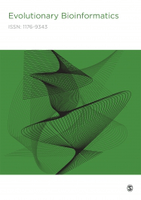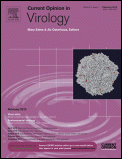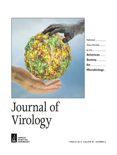
Virus Evolution
Scope & Guideline
Exploring the intricate dance of viral evolution.
Introduction
Aims and Scopes
- Viral Evolutionary Dynamics:
Research on the mechanisms and factors influencing the evolution of viruses, including mutation rates, selection pressures, and genetic drift. - Viruses and Host Interactions:
Studies that explore how viruses adapt to their hosts, including the co-evolutionary dynamics and host range shifts. - Epidemiological Modeling:
Utilization of phylogenetic and phylodynamic approaches to understand virus transmission patterns and outbreak dynamics. - Genomic and Metagenomic Analyses:
Integration of genomic data to characterize viral diversity, identify novel viruses, and assess the evolutionary relationships among viral strains. - Public Health Implications:
Research that translates findings in viral evolution to inform public health strategies, vaccine development, and outbreak preparedness. - Innovative Methodologies:
Development of new computational and experimental methods to study viral evolution, including machine learning and high-throughput sequencing techniques.
Trending and Emerging
- SARS-CoV-2 and COVID-19 Research:
A significant number of recent publications have concentrated on SARS-CoV-2, including its variants, transmission dynamics, and evolutionary adaptations, reflecting the global health crisis and its implications. - Zoonotic Viruses and Spillover Events:
Emerging studies focus on zoonotic viruses and their transmission from animals to humans, highlighting the importance of surveillance and understanding cross-species transmission risks. - Viral Genomics and Bioinformatics:
There is an increasing trend in utilizing advanced genomic techniques and bioinformatics tools to analyze viral populations, aiding in the identification of variants and understanding viral evolution. - Environmental Virology and Viromes:
Research on environmental virology, including the characterization of viromes in various ecosystems, is gaining traction, emphasizing the diverse roles of viruses in different habitats. - Viral Therapeutics and Vaccines:
Emerging research on the development of antiviral therapies and vaccines, particularly in response to evolving viral pathogens, is becoming a prominent theme in the journal.
Declining or Waning
- Historical Virus Studies:
There has been a noticeable decrease in studies focused solely on historical aspects of viral evolution, such as those tracing the origins of ancient viruses, possibly due to a shift towards more contemporary and clinically relevant research. - In-depth Host-Virus Interaction Mechanisms:
While foundational, detailed mechanistic studies of host-virus interactions have seen reduced representation, as the field moves towards broader ecological and epidemiological frameworks. - Single Virus Case Studies:
Research focusing on individual virus species without a broader comparative or evolutionary context has waned, as the journal emphasizes studies with wider implications for viral evolution and public health.
Similar Journals

JOURNAL OF VIROLOGICAL METHODS
Enhancing understanding through rigorous virological methods.Journal of Virological Methods, published by Elsevier, is a prominent peer-reviewed journal dedicated to advancing the methodologies employed in virology research. Since its inception in 1980, this esteemed journal has become a vital resource for researchers, professionals, and students focused on the intricate study of viruses and viral-related diseases. With a current ISSN of 0166-0934 and an E-ISSN of 1879-0984, this journal strives to present innovative techniques and tools that enhance our understanding of virology. Designed for a global audience, it operates in a rigorous academic environment, as reflected by its 2023 Scopus ranking of #40 in the Virology category and its Q3 quartile placement. The journal is committed to fostering open dialogue and collaboration within the scientific community, ultimately contributing to the development of novel strategies and interventions against viral infections. By offering comprehensive insights into virological methodologies, the Journal of Virological Methods continuously serves as a cornerstone for those dedicated to exploring the complexities of viral research.

Evolutionary Bioinformatics
Unlocking the secrets of evolution through bioinformatics.Evolutionary Bioinformatics, published by SAGE Publications Ltd, is a pioneering open-access journal established in 2005, dedicated to advancing the field of evolutionary biology through innovative computational techniques and bioinformatics. With an ISSN of 1176-9343, it serves as a critical platform for researchers, professionals, and students to disseminate impactful findings and foster collaboration across disciplines. The journal spans a broad scope, contributing significantly to the areas of Ecology, Evolution, Behavior and Systematics, and Genetics, as evidenced by its respectable Scopus rankings and quartile placements in 2023. With a commitment to providing comprehensive, peer-reviewed research articles and tools for sharing knowledge, Evolutionary Bioinformatics plays an essential role in shaping the future of evolutionary studies and bioinformatics. Readers and contributors alike are encouraged to engage with cutting-edge research that pushes the boundaries of understanding in this dynamic field.

Frontiers in Virology
Innovating Strategies for Viral ControlFrontiers in Virology, published by FRONTIERS MEDIA SA, is an innovative open-access journal dedicated to advancing the understanding of viral biology, pathogenesis, surveillance, and control strategies. With the rapid evolution of viral threats, this journal serves as a critical platform for researchers, professionals, and students to disseminate and access high-quality research, reviews, and perspectives in virology. The journal places a strong emphasis on interdisciplinary approaches, promoting collaborative efforts that drive breakthroughs in the field. While the specific impact factor and H-index details are currently unavailable, Frontiers in Virology is committed to rigorous peer review and integrity in scientific publishing. Authors and readers will benefit from the extensive reach provided by open access, making groundbreaking insights available to a global audience, thus contributing significantly to the ongoing dialogue in virology and public health.

REVIEWS IN MEDICAL VIROLOGY
Empowering Scholars in Medical VirologyREVIEWS IN MEDICAL VIROLOGY is a premier academic journal published by Wiley, dedicated to advancing the field of virology and infectious diseases. Established in 1991, this journal has gained a reputable standing, holding a Q1 ranking in both Infectious Diseases and Virology as of 2023, with impressive Scopus rankings placing it at #17 out of 344 in the realm of Medicine - Infectious Diseases, and #8 out of 80 in Immunology and Microbiology - Virology. This reflects its substantial impact factor and contribution to ongoing research and scholarship. While it is not an Open Access publication, REVIEWS IN MEDICAL VIROLOGY offers vital insights and comprehensive reviews that cater to a diverse audience including researchers, healthcare professionals, and students pursuing knowledge in medical virology. The journal serves as a vital resource for understanding the complexities of viral pathogens and the evolving landscape of antiviral therapeutics, making it an essential read for those poised at the forefront of infectious disease research.

Annual Review of Virology
Unveiling the latest breakthroughs in virology.Annual Review of Virology is a premier scholarly journal published by Annual Reviews, dedicated to advancing the field of virology through comprehensive and insightful reviews. Since its inception in 2014, this journal has established itself as a leading resource for researchers, professionals, and students alike, achieving an impressive Q1 ranking in the field of Virology and a Scopus rank of #10 out of 80 in its category, placing it in the 88th percentile. The journal features in-depth analyses of the latest developments in virology, encompassing various aspects such as viral pathogenesis, host interactions, and antiviral strategies, thereby catering to a diverse audience seeking the most relevant and cutting-edge information. Although it is not Open Access, Annual Review of Virology remains an indispensable tool for those engaged in virology research, transforming complex findings into accessible knowledge that shapes future investigations and practical applications in the field.

INFECTION GENETICS AND EVOLUTION
Exploring Evolutionary Pathways in Pathogen GeneticsINFECTION GENETICS AND EVOLUTION is a premier scholarly journal published by Elsevier, focusing on the dynamic field of infection genetics and evolutionary biology. Since its inception in 2001, this journal has emerged as a critical platform for the dissemination of cutting-edge research, bridging the gap between molecular genetics, evolutionary theory, and infectious disease study. With an influence profound enough to secure its status in the Q1 category for Ecology, Evolution, Behavior and Systematics and impressive Q2 rankings in Genetics, Infectious Diseases, and Microbiology, the journal offers researchers unparalleled insights that advance the understanding of pathogen evolution and host interactions. Despite the lack of Open Access, the research published in this journal significantly contributes to the academic discourse and informs public health approaches. By publishing high-quality studies and reviews through 2024, INFECTION GENETICS AND EVOLUTION remains indispensable for academics, professionals, and students seeking to explore the intricate mechanisms of infection and adaptation in various organisms.

Tumour Virus Research
Advancing knowledge in virus-mediated cancer research.Tumour Virus Research, an esteemed journal published by Elsevier, serves as a vital resource in the fields of cancer research, infectious diseases, and virology. With an impact factor reflective of its influence and recognized as a Q2 journal in multiple categories as of 2023, it rigorously presents high-impact research dedicated to the understanding of viral pathogens in tumorigenesis. Since its transition to an Open Access model in 2021, the journal has enhanced accessibility, empowering researchers and the academic community globally to explore cutting-edge findings. The journal covers a broad scope, encompassing the intricate interactions between viruses and cancer biology, which is crucial for developing novel therapeutic strategies. With a commitment to advancing scientific knowledge, Tumour Virus Research welcomes submissions that push the boundaries of current understanding and contribute to the ongoing battle against virus-mediated cancers, making it an indispensable publication for professionals, researchers, and students in the field.

Current Opinion in Virology
Connecting Research with Clinical Innovation in VirologyCurrent Opinion in Virology, published by Elsevier Science Ltd, is a premier journal dedicated to advancing knowledge in the dynamic field of virology. Established as a respected source of comprehensive reviews and critical evaluations, this journal boasts an impressive impact factor and has achieved a distinguished Q1 category ranking for virology, signifying its pivotal role in the academic community. Serving researchers, professionals, and students alike, Current Opinion in Virology presents insightful contributions that delve into the latest developments, emerging trends, and pivotal challenges facing virology today. With its Scopus ranking placing it in the top 15% of its field, the journal provides unparalleled access to cutting-edge research that informs both basic and applied aspects of virology. Although not an open-access journal, it offers options for subscriptions that ensure accessibility to critical content. As the field continuously evolves, Current Opinion in Virology remains at the forefront, bridging the gap between research and clinical application, making it an essential resource for all in the virology community.

Journal of Virus Eradication
Innovating solutions for global virus eradication.Welcome to the Journal of Virus Eradication, a premier publication dedicated to advancing the field of virology and infectious disease research. Published by MEDISCRIPT LTD, this journal provides a vital platform for sharing cutting-edge research findings in key areas including epidemiology, immunology, and public health. With an impressive classification of Q2 in Epidemiology and Infectious Diseases for 2023, this journal exemplifies a commitment to high-quality scholarship and impactful research. The Journal of Virus Eradication is instrumental in disseminating knowledge that tackles viral threats, contributing to global health initiatives aimed at virus containment and eradication. Researchers, professionals, and students alike will find this journal an invaluable resource, making significant contributions to the scientific community and society at large.

Journal of Virology
Unraveling the Mysteries of VirologyJournal of Virology is a premier scholarly journal dedicated to advancing the field of virology, focusing on the molecular mechanisms of virus-host interactions, viral pathogenesis, and the latest therapeutic and vaccine developments. Published by the American Society for Microbiology, this esteemed journal has been a cornerstone for researchers since its inception in 1967, providing a platform for high-quality, peer-reviewed research. With a commendable impact factor indicative of its relevance and influence, the journal is categorized in the top quartile (Q1) for Virology, Microbiology, and Insect Science, reflecting its significance in these fields. Researchers can access a wealth of studies and findings that shape our understanding of viruses and their interactions with hosts, highlighting its role in both basic and applied sciences. Positioned in the United States, the Journal of Virology serves a global audience, ensuring that cutting-edge discoveries reach professionals, students, and academics alike. Join the conversation as we explore the complexities of virology and its implications for human health and disease.